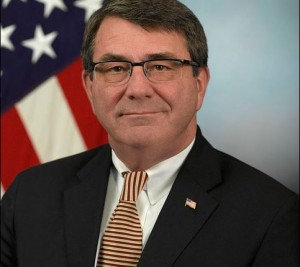
WASHINGTON – Today, the Human Rights Campaign (HRC) responded to the nomination of Ashton Carter as Secretary of Defense in light of the challenges that remain for full LGBT equality in the U.S. military.
“We look forward to working closely with Ashton Carter on the important challenges to equality that remain for LGBT service members,” said David Stacy, HRC’s Government Affairs Director. “While there has been a tremendous amount of progress made in the Armed Forces over the past several years starting with the repeal of ‘Don’t Ask, Don’t Tell’, transgender service members are still forced to serve in silence because of outdated regulations. There is no valid reason for this to continue. Once confirmed, Ashton Carter should address this expeditiously.”
The repeal of the discriminatory “Don’t Ask, Don’t Tell” (DADT) policy allowed lesbian, gay, and bisexual individuals to serve in the military openly and honestly. However, while the repeal of DADT was an incredibly important step forward, many issues remain for these service members, veterans, their families, and those still prohibited from serving.
Two of the remaining challenges that can be addressed specifically by the Department of Defense include:
Transgender Service: Despite the repeal of DADT, transgender individuals are still prohibited from openly serving in the military due to outdated DoD regulations that are out of step with current medical practice. In May of this year, Defense Secretary Chuck Hagel said he was “open” to reviewing the military’s ban on transgender people. An estimated 15,500 transgender individuals are currently serving in silence.
Non-Discrimination Protections: LGB service members who face discrimination or harassment have few options for addressing their problem. Most harassment and discrimination complaints can be pursued outside of the chain of command through the Military Equal Opportunity Program. However, following repeal of DADT, sexual orientation was not included in the DoD’s formal non-discrimination policy, which triggers access to the MEO complaint and support processes, leaving LGB service members more vulnerable.











